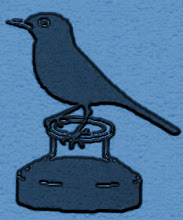When I first read this it amazed me as the solution to a riddle I had always wondered about. It is a racial memory-link to Jewish pre-Passover mad obsession with whitewashing our homes, more prominent among the Sephardic and Israeli Jews who did not wander as far as the cold exile of the European and Soviet continents when we were cast out of the Land of Israel.
At my home in Jerusalem the shlepping up and down ladders and getting rid of leavened products and kitchenware is at is most intense today. And although we grump through the ordeal and the feet hurt, I have taken a blog-break to express my feeling of joy and renewal.
We were enslaved, experienced exile from our homeland, suffered the Spanish Inquisition and countless pogroms and were almost wiped out in the unspeakable Holocaust. We were written off countless times, but here we are. Cleaning our houses, innovating and giving new life to a flowering and fruitful land that lay barren for centuries. And most important of all, raising beautiful and clever children.
For my graceful and slightly crazy cats, blue-eyed Kinneret, born on the shores of that northern sea, and his sister green-eyed Rachel, their 14th Passover cleaning is accompanied by lots of temporarily empty cartons lying about which as any cat knows are heavenly havens to scratch about and cuddle in while the world passes you by. For like children who do not live in great houses and have rooms for themselves, cat also have the ability to create a magical self-sufficient world under a table or inside a carton.
This is the translation of my poem about Passover at my father's table which appeared in the Israeli poetry journal "Mashiv HaRuach," [translated loosely as "Master of the Winds".]
Dad passed away when I was twenty-one and with each passing year I grow closer in memory to him.
MY FATHER'S PESACH SEDER
At my father's Pesach table
the ten plagues burned into my living flesh,
the wine spilled to signify each plague.
No small drop from one finger
the wine flowed into each Pesach saucer
taken down from locked closets
and polished till it shone
then poured into a great crystal bowl.
For the wine becomes our own blood,
when we weep and recall the slavery,
the treachery of
and we remember the blood of the infants of our wombs
buried alive between the great slabs of pyramid stone
worked with our hands.
At the Pesach table of my father
I fled Pharaoh's legions to the burning light of Moses's eyes,
I danced to freedom with the Prophetess Miriam
on the shores of the parted sea.
*Pesach – Passover in Hebrew
© Shira Twersky-Cassel
